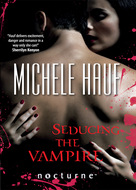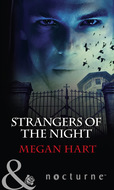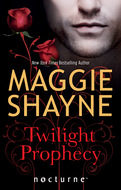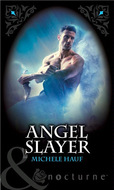Kitap dosya olarak indirilemez ancak uygulamamız üzerinden veya online olarak web sitemizden okunabilir.
Kitabı oku: «Deep Down»

Praise for the novels of New York Times bestselling author Karen Harper
“Will keep you awake until bedtime and beyond.”
—Tess Gerritsen on Empty Cradle
“A compelling story … intricate and fascinating details of Amish life.”
—Tami Hoag on Dark Road Home
“The story is rich … and the tension steadily escalates to a pulse-pounding climax.”
—Publishers Weekly on The Hiding Place
“Harper keeps tension high as the insane villain cleverly evades efforts to capture him. And Harper really shines in the final act, providing readers with a satisfying and exciting denouement.”
—Publishers Weekly on Inferno
If you love Karen Harper look out for
DARK ROAD HOME
available from www.mirabooks.co.uk
“The Cherokees speak of the ginseng plant as a sentient being … able to make itself invisible to those unworthy to gather its roots.”
—William Bartram, naturalist, Philadelphia, 1791
“Ginseng is the child of lightning. It blends yin and yang, darkness and light.”
—Chinese legend
“I’m not afraid of my ginseng garden being robbed anymore … my guns will hold their position with their eyes wide open day and night.”
—LJ Wilson, Special Crops, 1908 journal
“For the love of money is the root of all kinds of evil.”
—I Timothy 6:10
Deep
Down
Karen
Harper

MILLS & BOON
Before you start reading, why not sign up?
Thank you for downloading this Mills & Boon book. If you want to hear about exclusive discounts, special offers and competitions, sign up to our email newsletter today!
Or simply visit
Mills & Boon emails are completely free to receive and you can unsubscribe at any time via the link in any email we send you.
1
Eastern Kentucky, Appalachia September 4, 2007
Head down, her eyes skimming the ground, Mariah Lockwood walked the woods. She was looking for ginseng, not to dig and sell its roots as so many Appalachians did, but to count the plants that sprang from the precious roots. At this altitude, the herb was especially easy to spot right now with its yellowing leaves and clusters of red berries. The buried treasure of the ginseng root was worth millions to its buyers, especially in the massive Chinese market. Wild wood American ginseng, locally called sang, was getting so rare it was threatened, and that’s where she came in.
Seven years ago, her daughter, Jessica, had gotten her the nice-paying job of ginseng counter in these parts. The human-body-shaped ginseng root was on the U.S. government’s endangered species list. If Mariah’s yearly count went down too far, exports would cease and lots of Appalachians, as well as the Chinese and other deep-pocket buyers, would be spitting mad.
Since the sun was sinking fast, this site would be Mariah’s last stop of the day. Yet, feeling the pinch of hunger, she stopped to pluck some pawpaws. Most places, the little, banana-shaped fruits ripened later, but where the setting sun streamed past the peaks, they were ready early. Their sweet flavor was an acquired taste, but she and Jessie loved them baked and served with cream.
As she savored the soft pulp, Mariah wondered what her girl was eating in Hong Kong at that big conference on cultivating ginseng. Probably chop suey, rice and lots of tea. More than once, Jessie had wanted her mother to travel with her, but traveling to Lexington for her doctorate graduation was as far as Mariah wanted to stray from this area she knew and loved.
“This is the forest primeval,” Jessie had quoted from some poem the last time the two of them had walked the woods. Ever since Mariah had agreed to let Dr. Elinor Gering take Jessie into her home near the Kentucky university campus in Lexington, she’d taken fast to book-learning, though the little town of Deep Down and its people still ran fierce in her blood. Although Jessie used to spend every August here, she’d been too busy this year, and Mariah couldn’t help but wonder if Drew Webb’s return had something to do with that.
Before she checked her last sang spot—one of her secret ones, far back in the smallest hardwood cove huddled up to the stony skirts of Snow Knob—she got her a notion to walk the rocks of Bear Creek, just like in the old days. She and Nate had courted here beside its rushing waters, jumping from rock to rock and sitting out on the biggest one to share corn bread and kisses. When they were both nineteen, smack-dab in the middle of that rock—their island, they’d called it—he’d asked her to marry up with him, and Jessie had been born the very next year. The precious, nearby sang patch had provided roots that paid for her gold wedding band, their marriage license and some blankets and dishes to set up housekeeping.
With her pack slung over her shoulder, she jumped to the first rock, then leapt from stone to stone, just as she and Nate had, holding hands. The year Jessie turned eight, she’d lost him in a freak accident when he was repairing a barn roof for extra cash. Though she was still young and could have used someone to support them, she’d never wanted to wed again. A one-woman man, that was her. And sometimes here, like right now, she felt her curly haired and sky-blue-eyed Nate was still with her, laughing, leaping. No way this place made her sad.
Finally, reluctantly, much farther down the creek, she stepped back on firm ground again. In the spring or after a rain, the creek rose high and covered some of these stones as if they weren’t here at all—like folks you’d loved and lost but you knew were still there, just below the surface of your rushing thoughts.
From the slant of sun, Mariah reckoned it was after seven. Evening shadows stretched long and dark, ‘specially here at the foot of Snow Knob. Hurrying now, she set off again. She was fixin’ to get this last site counted before she went home. The familiar forest trail snaked through the fern-carpeted floor ever deeper into the basswood and walnut trees, the kinds sang liked for company. A ragged canopy overhead that threw mottled shade and sun—that was sang country.
Already she could hear Bear Falls, which fed the creek, crashing down its limestone stairs. She’d once joshed Seth Bearclaws, the only full-blooded Cherokee round here, by asking if the falls were named after him. But Seth didn’t have a sense of humor, ‘specially about someone counting or digging sang in the old sacred places of his people.
As if the thought of diggers had summoned them, Mariah’s practiced eye picked up signs they’d been through here, or at least someone had used the sharp edge of a shovel or hoe as a kind of cane as he walked this path. A few small limbs were snapped off too, as if to mark a way back out. She prayed they hadn’t found her special spot, untouched all these twenty-eight years, maybe even longer. Folks not only poached sang off-season, but outright stole and even killed to get or protect the root. Right now was legal sang season, but diggers had to get a license and fill out all kinds of government forms when they sold it, and the local game was to get around all that. Her friend Cassie had said she thought picking sang was a rite of passage ‘round here, and Drew Webb had opined it had something to do with testosterone, or whatever that male hormone was that made men feisty and daring.
Vern Tarver, who owned the sang store and historical museum in town, had argued that if George Washington knew the value of ginseng and Daniel Boone made money selling it, why should folks today have to change their ways? Appalachians over the centuries had considered hunting anything, anytime, their God-given right and couldn’t abide the government telling them what to do. Not when sang money had brought many of their kin through the Depression or tided them over in other tough times.
Mariah figured it didn’t take the likes of Vern Tarver to know sang roots were worth as much as one thousand dollars a pound in Asian markets. It was next to useless to try to tell Eastern Kentuckians to let the sang alone for a few years till it matured or to be sure to replant the precious berries when they dug up a site, no matter if the new sheriff said times and laws were different now.
The Chinese buyers who came into Vern Tarver’s store, smooth as they were with their clean hands and hard cash, Mariah liked less than poachers or careless diggers. The big money market encouraged ripping out roots, legal season or not, and she knew Vern was only too happy to play middleman to get his cut. No use trying to talk sense to him, ‘specially not since she’d told him to stop trying to sweetheart her. He’d near on had a fit when she’d told him no to his fancy marriage proposal, and if he couldn’t accept that, just not to come ‘round no more.
Yes, she saw the footsteps with the hoe marks heading toward her deep woods sang patch. If that fancy GPS thingamajig or the tiny cell phone the government had given her worked worth a darn in these hills and hollers, she’d use them right now to call Sheriff Drew Webb, tell him to watch in town for illegal sales of prime, old roots. She’d have him stake out another spot she knew. She could give him the location by the landmarks she always went by, never mind satellite coordinates that were no good, no how here. Why use things in outer space to find where you were, when you knew these woods like your own back forty?
Mariah hunkered down to examine the torn ground where someone had dug out the patch of sang—four-prongers, at least, if she rightly recalled her notes from last count. In all her forty-eight years, this was the weirdest-looking dig she’d seen. Odd hoe marks, strangely curved, pierced the ground in a pattern. A big hoe, a sharp one, but not carelessly used. No, the slashes in the earth were exact, deep and powerfully placed.
She couldn’t picture anyone from Deep Down doing this so precisely, then stuffing their prizes in the usual pillowcase or backpack and just hightailing it back to town. Strangest of all, the lopped-off yellowing plants and their red berries were laid out in designs around the edge, like some foreign work of art.
Then, even through the muted roar of the falls and the rustling leaves, she heard a sound she couldn’t place.
What in creation? A footstep? Someone snapping a branch? She’d been a wildcrafter almost all her life, picking wild herbs, mushrooms and moss to sell to outsiders as far away as Highboro or even Lexington. She knew the normal forest sounds and scents, but some new, heavy smell—fetid and yeasty, or was it moth balls?—came to her on the breeze.
Slowly, in the middle of the ravaged, rearranged sang patch, she stood. Turning her head, she tried to pierce the narrow shafts of sun stabbing almost horizontal between the tree trunks. For once, this vast, deep woods seemed to press in on her. Mariah had never claimed to have the sixth sense of some mountain women, including her own mother, but she sensed danger now. Someone else was out here close, something waiting for the shadows to deepen, maybe for her to leave. It could be a bear, but she didn’t think so. They liked to make themselves real scarce, and they didn’t smell like that. It wasn’t skunk, she thought, as her nostrils flared.
Hair prickled on the nape of her neck. Maybe she’d surprised a digger who’d rubbed some sort of homemade liniment or bug juice on his skin, and he was watching, waiting. Maybe he knew she’d recognize him and didn’t want to get caught without a license, afraid she’d tell Drew Webb.
For the first time in her life, alone in the woods, Mariah Lockwood tasted bitter, raw fear. She’d surprised poachers and diggers before, and they could be as dangerous as those who grew the stuff and guarded it with shotguns and no shut-eye. But she’d always just made a quick retreat or told them she’d keep quiet. When a mountain person made a vow, that was that. So why did this feel different?
Hefting her pack with her precious records and lists of landmarks, Mariah edged back toward the path she’d taken coming in. She wouldn’t walk the rocks of the creek this time, but hightail it back to the old logging road.
Then, about thirty feet away, she saw something blocking her path.
She let out a half grunt, half scream. The sun-streaks behind the large, dark thing blinded her. Was it a bear? This was not some sort of prank or joke. Pure menace reeked from it, along with that smell.
She threw her trembling arms over her head to make herself look larger and shouted in a loud voice, “Bear, go! Go!” Not only did it not run, but it took a step forward and lifted something in its paw or hand.
Not a bear, no, it held itself more erect. And bears didn’t use tools. Bulky, maybe human, but grotesque with that fur—that obscured face and strange-shaped head. Despite all the legends of forest creatures, none told of an Appalachian yeti or big ape. It had something shiny and sharp in its paw or hand. Hellfire, had that thing been digging sang?
Though it would take hours in the dark to get back down to town another way, she turned and fled. Her pulse pounded in her ears; her innards nearly let loose. The things in her pack bounced; the shoulder strap slipped down her arm so the pack almost tripped her. She hadn’t run dead out in years … dead out.
Her breath rasped in her throat. Was this a nightmare, and she’d wake up? Was that thing a haint like folks said appeared from the dead? A shape-changing monster from one of Seth’s Cherokee myths?
She took a tumble over a tree root and lost her pack. She scrambled up again, on hands and knees at first, then stumbling, staggering. It was coming after her in wide strides at a jogging pace, breaking tree limbs, hitting something against tree trunks. With stark fear in her soul, she was sweating, shaking. She did not look back at the thing, but looked into her heart. Jessie, she thought, so far away, so smart. Proud of her, she was, though sometimes she regretted giving her away, sending her away … Away … She had to get away …
Despite the heat and humidity hitting her like a hammer, Dr. Jessica Lockwood was excited to get out of the plush, air-conditioned lobby of her Hong Kong hotel. Most people at the conference spoke decent English, but for this foray outside she’d hired one of the translators, Sunny Chan, to accompany her to nearby Ko Shing Street, also called Ginseng Street.
It was only a little after seven in the morning—that would make it just after 7 p.m. of the previous day at home, she thought—and she was astounded by the impact of the oppressive weather and the push of people, both in business suits and traditional clothing. Cursing her naturally curly, flyaway tresses, sprung loose by the instant steam bath of humidity, she shoved her chin-length hair back behind her ears and headed out.
The crowds seemed as oppressive as the heat. However much she had travelled for research or relaxation, she never quite seemed to shake the habit of judging everything against quiet, little Deep Down, the tiny Appalachian town with a population of 127 where she was reared—raised up, as her mother would put it. Sometimes in her head, the slow, flat drawl of her mother’s voice battled with the undulating speech of Elinor, the Lexington professor who had been her guardian from the time she’d turned sixteen.
“I can’t believe how busy it is already,” Jessie told the petite, pretty translator as people rushed past. “I was hoping to talk to a few ginseng sellers before the masses hit.”
“Masses hit?” Sunny echoed in her clipped, British accent as she arched her winged eyebrows. “Oh, you mean before it gets crowded. Believe me, the shop owners would be very honored to speak with you.”
Although Jessie’s presentation on how ginsenosides from the ginseng herb significantly slowed the growth of breast cancer cells in test tubes had been well-received, she realized Sunny meant that the reputation of wild Appalachian ginseng was strong in Asia. As they managed to avoid darting workers with cloths coiled around their heads for elaborate sweatbands, the first shop they came to proved the power of U.S. sang.
She couldn’t read the handwritten calligraphy on the sign, but the U.S. flag was elaborately drawn and colored in on a poster next to a picture of a hairy, two-legged, two-armed ginseng root and an arrow beckoning buyers to step inside. Yes, wild forest Appalachian sang had a strong reputation here and was increasingly trendy at home. If it proved useful in the battle against endocrine-driven cancers, its demand and value would escalate even more.
But suddenly, strangely, this place was getting to her.
Jessie had loved the lofty view from her quiet room in the almost futuristic glass-and-steel skyscraper hotel, with the freighters and junks in the harbor and the mountain-studded monster of mainland China looming beyond. But she felt enclosed, trapped here. This cluttered, crowded shop was a far cry from Vern Tarver’s Fur and Sang Trader at home. Amidst all these unique, jumbled herbs, a strange smell slammed her square in the stomach, fetid, rich, yeasty. The familiar ginseng, yes, but something else, something forbidding, even dangerous.
Jessie glanced around for the source of the smell. Displayed on wooden trays in the long, narrow shop, which seemed like something out of a medieval time capsule, were some things she could recognize and some she could not.
“Bird nests and shark fins—very expensive—for health-giving soups,” Sunny was explaining in a singsong voice as she translated the cards sticking out of each box. “Dandelion for gallbladder cleansing, deer tail for back pain, dried lizard to improve weak kidneys, dried sea horse for asthma and, oh, for sexual problems, too.”
Sexual problems, Jessie thought. The only problem she had was the lack of a man in her life. In fact, her past with guys was as gnarled and twisted as the sang roots she spotted heaped up farther back in the store, where a Chinese woman with a face webbed with wrinkles was pawing through a pile with a calculator in one hand.
Sunny rattled off some Chinese to the old woman, though the only word Jessie could pick out was jen-shen. The Chinese word for the herb meant “root of life.” The woman’s wizened face lifted; she eyed Jessie as if she were going to price her to sell. Though Jessie had longed to see the inside of a ginseng shop in the land where much of the $52 million-a-year market was based, she had to keep herself from fleeing. The woman was not frightening, so what was wrong with her? Was she coming down with some exotic sickness, or were the smells and heat just getting to her? All this seemed so far away from her mother and Kentucky. And from the strange yearnings she’d had for Drew Webb, whom she knew was back in Deep Down.
“She’s saying,” Sunny told her, “last year she had a root she displayed on velvet cloth go for six figures in American money. Came from Kentucky. She wants to know, you have any to sell?”
“She must know it’s all regulated,” Jessie protested. “Did she get that root from the black market?”
“She says she know nothing of black market.”
Jessie’s head was beginning to pound. She had to get out of here. Her heartbeat sped up, as if she’d run miles.
“Now with Americans putting jen-shen in power drinks and health foods,” Sunny was translating again, “costs going up …”
Jessie squinted back into the dim reaches of the shop where women of all ages bent over rows of cardboard boxes on long wooden tables, sorting ginseng. When the shop owner saw where she was looking, she spoke to Sunny, who said, “She say her sorters, even if they are old, have soft, young hands from touching the jen-shen all day. She say the herb preserve yin, the life force, and good for aphrodisiac and keep people young.”
If her head had not been pounding and her stomach roiling, Jessie would have laughed. If ginseng was a fountain of youth, why did this old woman look like some ancient sorceress who had stepped from the pages of a book on primordial myths? She had to get back into the calm of the hotel. She felt a stab of longing for her mother, for the cool, leafy coves in the skirts of the mountains.
“I feel a bit faint,” Jessie told Sunny and managed a polite nod to the old woman. “Please thank her for speaking with me. I’m going to head back to the hotel.”
She walked as steadily as she could, though she felt the urge to run. Had the other-side-of-the-world time zone difference given her delayed jet lag? At least her headache wasn’t caused by staring too long into a microscope at floating ginsenosides attacking tiny cancer cells and tumors in the test tubes. Hours of research sometimes made her eyes cross and her brain blank out. She felt like that now and, worse, as if something in the midst of these towering skyscrapers in old-new Hong Kong were chasing her.
The shrill ring-ring, ring-ring dragged Jessie from deep, dream-haunted sleep. It took her a moment to recall she was in her Hong Kong hotel room. Exhausted, she’d collapsed in bed after her visit to Ko Shing St., almost as if that strange smell in the herb shop had drugged her. Her bedside table clock read 7:17 p.m. She’d missed the afternoon lectures and the tour of the city she’d signed up for. Maybe it was some conference attenders on the phone, wondering if she could meet them for dinner or why she’d missed the tour bus.
She grabbed the receiver. “Dr. Jessica Lockwood.”
“Jess? Sheriff Webb in Deep Down—Drew.”
Her heartbeat kicked up even more. No one has ever called her Jess but Drew. Despite the coolness of the room, she shoved the duvet and covers off. She began to sweat. She’d know that voice anywhere, deep, husky. It was a voice she’d known since her earliest memories, one that haunted her. Something must be wrong at home, very wrong.
“Drew, what is it?”
“You were hard to trace. Cassie gave me your Lexington apartment and your lab number, but then I found this Hong Kong hotel number with a note in your mother’s kitchen. Jess, I know you’re thousands of miles away, but can you come home right away? I’m sorry to inform you that your mother’s missing.”
She gasped. “Missing? What happened? Missing how?”
“As best I can tell she went out counting sang and just didn’t come back. Vern Tarver dropped by her house after dinner yesterday evening but couldn’t find her, though her truck was there. He checked all around, called people, but she wasn’t at Cassie’s—nowhere—so he called me. I rechecked her neighbors and friends but no leads. I’ve had a search party out since daybreak—they’re still out, some even with hounds. But she covers a wide area, and I don’t know her sang counting spots. Do you?”
She raked her fingers through her hair. “Some. I—I’m not supposed to head home until tomorrow. Maybe she twisted her ankle or something like that. Please keep looking. She knows those woods like the back of her hand.”
“Yeah, but some of those spots are secret and deep in. I’m really sorry to have to call you like this. Be assured we’ll keep looking, all of us. You—you did know I’m sheriff here now?”
“She told me. Be a good one, Drew. Please, please find her safe and sound. I’ll make arrangements to fly back as soon as I can, and I’ll call you. Here’s my cell number if you need it.” She recited it to him, and he gave her his.
“But you know it’s better to use the landlines around here,” he reminded her. “Even now, the mountains make a difference. Jess, take care and see you soon.”
The line went dead. For one moment, she stared at the sleek receiver in her hand, seeing Drew that last night, furious, hurt—naked. She’d just been told the last thing in the world she could bear to hear. And from the last and only man she had ever really loved.








